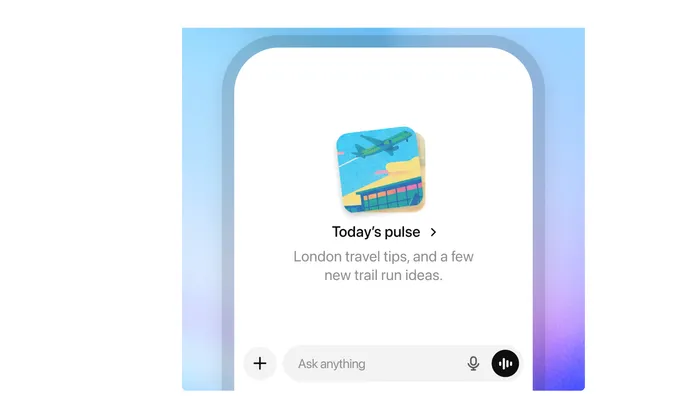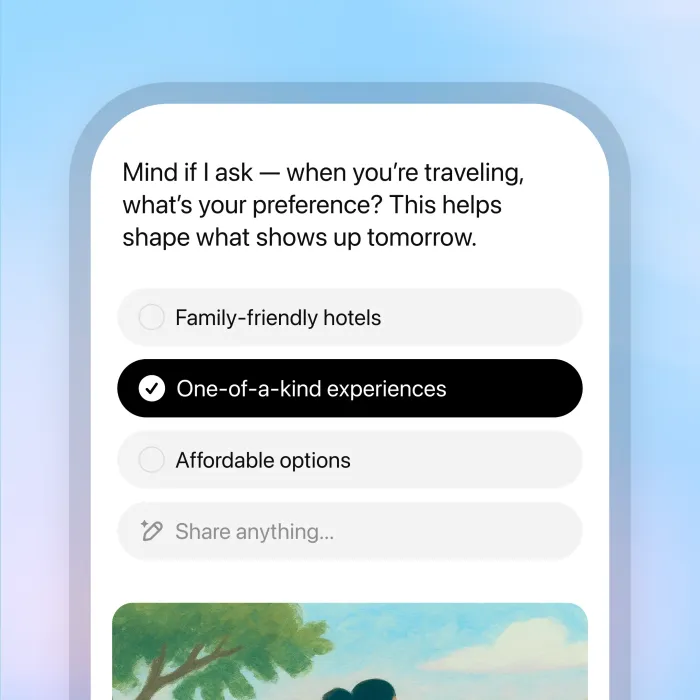
.
Image: OpenAI
In a significant pivot toward more anticipatory AI, OpenAI today announced ChatGPT Pulse, a feature that transforms ChatGPT from a reactive question-answer engine into a more proactive assistant.
The rollout begins as a preview for Pro users on mobile, with plans to expand to Plus and (eventually) all users.
Pulse is built around the idea that many useful insights, reminders, or suggestions lie just ahead of what users explicitly ask.
Rather than waiting for you to pose a query, ChatGPT will autonomously “research on your behalf,” synthesising information overnight (or between sessions) based on your memory, chat history, app integrations, and user feedback.
That work is then delivered as concise, visual “cards” each morning, updates you can quickly glance at or dig deeper into.

.
Image: OpenAI
Pulse marks a strategic shift in how users interact with generative AI. Instead of confining ChatGPT to the role of “answering questions,” OpenAI is orienting it toward anticipation and contextual assistance.
Some of the core technical innovations include:
Asynchronous background synthesis: Pulse doesn’t wait for a prompt. It continuously synthesises relevant information (e.g. news, calendar context, prior conversations) and surfaces it when appropriate.
Multimodal context integration: Users can connect apps such as Gmail or Google Calendar. With those turned on, Pulse can weave in contexts like upcoming meetings, travel plans, or email threads, crafting suggestions such as sample agendas, restaurant recommendations, or timely reminders.
User-guided curation & feedback loop: Pulse encourages users to “curate” what topics appear, and offers thumbs-up/thumbs-down feedback. Over time, the system adapts to your interests and priorities.
Safety filtering: Because the tool is proactive, OpenAI embeds safety checks to avoid surfacing harmful or policy-violating content.
While the feature is in preview, OpenAI candidly notes it won’t always be perfect.
Pulse may occasionally suggest topics that are irrelevant or ahead of the curve. But as the system learns from real use, OpenAI expects its relevance and accuracy to improve.
For everyday users, Pulse promises to bridge the gap between silent AI and useful habits.
Here’s what changes:
Wake up to insights: Instead of opening ChatGPT and asking, “What’s new?”, Pulse arrives with a morning digest of updates tailored to you, from project follow-ups to local tips or reminders.
Less effort, more relevance: You don’t need to remember every question. Pulse surfaces ideas or next steps you might not have considered.
Contextual help when it matters: With calendar or email connected, Pulse can anticipate your needs before you do, for example, drafting a meeting agenda, flagging a deadline, or suggesting travel logistics.
Transparency and control: Users remain in the driver’s seat. You can curate what you see, provide feedback, and disable or adjust integrations.
Gradual roll-out and improvement: Because it’s in preview, early adopters will shape how Pulse evolves. OpenAI intends to expand the feature’s reach and capabilities over time (e.g. deeper actions during the day, more app integrations).
